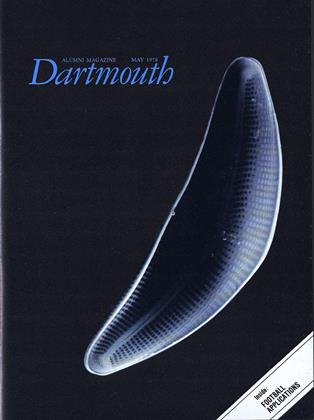A most astute diplomat in general, Dartmouth's own Daniel Webster almost came a cropper in the twilight of his career as Secretary of State over, of all things, the excrement of sea birds.
It seems that American farming interests coveted the rich deposits of guano in - or on - the Lobos Islands, which were Peruvian possessions. When negotiations in the early 1850s failed to break Peru's monopoly, a New York sea captain wrote Webster suggesting that perhaps some way might be found to establish the right of Americans to help themselves to the disputed droppings. Some uncharacteristic ex post facto reasoning persuaded Webster that an American might well have discovered the islands and hence that the government had a duty to protect its treasure-hunting citizenry.
So Webster ordered up a "vessel of competent force," after procuring President Fillmore's initials on a letter signifying his intent. In a postscript, he suggested that the matter not be made public.
An uncooperative newspaper published the letter, inflating Webster's blunder into a diplomatic mess. The order to dispatch a warship was rescinded and peace descended once more on the romantic Lobos Islands, leaving the farms of the United States the poorer for nitrogen.
The fiasco is discussed in an article in the fall issue of the journal Diplomatic History by Professor Kenneth E. Shoemaker of the History Department, editor of the diplomatic-correspondence volumes of the Webster Papers.
 View Full Issue
View Full Issue
More From This Issue
-
 Feature
FeatureCould it be that the political animals are hibernating?
May 1978 By Anne Bagamery -
 Feature
FeatureRev. Frisbie's Wonderful Discovery
May 1978 By James L. Farley -
 Feature
FeatureCastles in the Clouds
May 1978 By George Hathorn -
 Feature
FeatureThrough a Lens Brightly
May 1978 -
 Article
ArticleKeeper of the College Attic
May 1978 By M.B.R. -
 Article
ArticleMy Dog Likes It Here
May 1978 By COREY FORD








